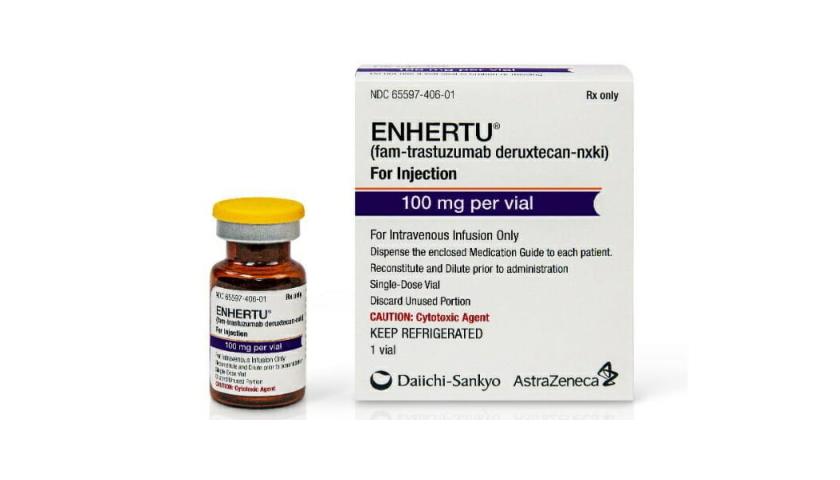Enhertu shows survival boost in HER2+ solid tumours

AstraZeneca and Daiichi Sankyo's chances of getting approval for Enhertu as a therapy for all HER2-positive tumours – regardless of their location in the body – have just risen a notch.
The HER2-directed antibody-drug conjugate (ADC) has been shown to confer "clinically meaningful" improvements in both progression-free survival (PFS) and overall survival (OS) when used as a second-line therapy for HER2-expressing tumours in the DESTINY-PanTumor02 study.
There are no data available on those endpoints yet, but the finding reinforces results presented at the ASCO cancer conference earlier this year, which revealed an objective response rate (ORR) of 37.1% with Enhertu (trastuzumab deruxtecan) across the broad range of HER2-expressing advanced cancers, many of which have no approved HER2 therapy.
Enhertu is already approved as a treatment for a selection of HER2-positive and HER2-low solid tumours across breast, gastric, and lung cancers, but DESTINY-PanTumor02 includes a basket of less common diseases, including biliary tract, bladder, cervical, endometrial, ovarian, and pancreatic cancer.
Individually they represent relatively small patient populations, but collectively could represent a sizeable new market for Enhertu. However, there were divergencies in efficacy seen with Enhertu across the different cancer types, with a much smaller benefit seen in pancreatic cancer, for example, which could have a bearing on regulatory deliberations.
In a statement, AZ and Daiichi Sankyo said the new data would support "ongoing discussions" with global health authorities.
"These updated results from the DESTINY-PanTumor02 trial are important as we work to reshape the clinical landscape in HER2 expressing advanced cancers where patients currently have limited treatment options and face a poor prognosis," said Mark Rutstein, Daiichi Sankyo's global head of oncology development.
"The overall survival demonstrated by Enhertu in these patients is a significant step forwards in the potential to advance current standards of care and offer new options for patients with HER2 expressing cancers."
If they are able to convince regulators of the value of using Enhertu to treat any HER2-expressing tumour, the ADC would join a select but growing list of cancer therapies with 'tumour-agnostic' indications based on the presence of biomarkers.
Others include Eli Lilly's Vitrakvi (larotrectinib) and Roche's Rozlytrek (entrectinib) for NTRK-mutated tumours, Bayer/Eli Lilly's RET inhibitor Retevmo (selpercatinib), Merck & Co's Keytruda (pembrolizumab) for tumours with microsatellite instability-high (MSI-H) or mismatch repair deficient (dMMR) mutations, and GSK's Jemperli (dostarlimab) for dMMR-positive cancers.
HER2 is more widespread than any of these, with low levels in some tumours like melanoma rising to 4% in lung cancer, 7% in colorectal cancer, and up to 12% in some forms of bladder cancer. Around 20% of breast cancers also express the biomarker.












